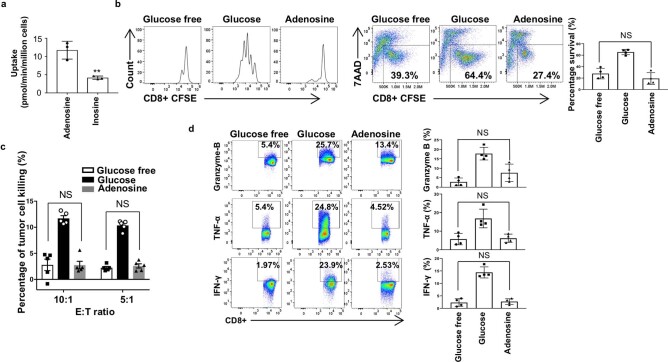Extended Data Fig. 3. Adenosine cannot support human T effector cell proliferation and function in the absence of glucose.
a, Human PBMCs were stimulated with plate-bound anti-CD3 and anti-CD28 antibodies for at least three days to generate active human T cells. Uptake of adenosine or inosine in active human T cells was determined by the cellular retention of corresponding radioactive tracers. Data are presented as mean ± SD (n=3). Data are representative of two independent experiments. **, P=0.0063 for Adenosine versus Inosine. b, Naive CD8+ T cells from PBMCs were activated by plate-bound anti-CD3 and anti-CD28 antibodies in the indicated conditional media for 5 days. Cell proliferation and cell death of active CD8+ T cells were determined by CFSE dilution and 7AAD uptake, respectively. Data are presented as mean ± SD (n=4). NS, P=0.2585 for Glucose free versus Adenosine by unpaired two-sided t-test. c, GD2-CAR T cells are generated using complete media, then switched to indicated conditional media and cultured for 72 h. LAN-1 cells were co-cultured with GD2-CAR T cells in the indicated conditional media, and cell death of LAN-1 was determined by calcein release. Data are presented as mean ± SD (n=4). NS, P=0.9764 and 0.4716 for E:T ratio 10:1 and 5:1 for Glucose free versus Adenosine, respectively. d, The indicated proteins in GD2-CAR T cells were quantified by intracellular staining following PMA and ionomycin stimulation. Data are presented as mean ± SD (n=4). NS, P=0.1058, 0.8182, 0.7081 for Granzyme B, TNF-α, and IFN-γ for Glucose free versus Adenosine, respectively. Data were analyzed by unpaired two-sided t-test (a–d). Sample size (n) represents biologically independent samples (a–d).

